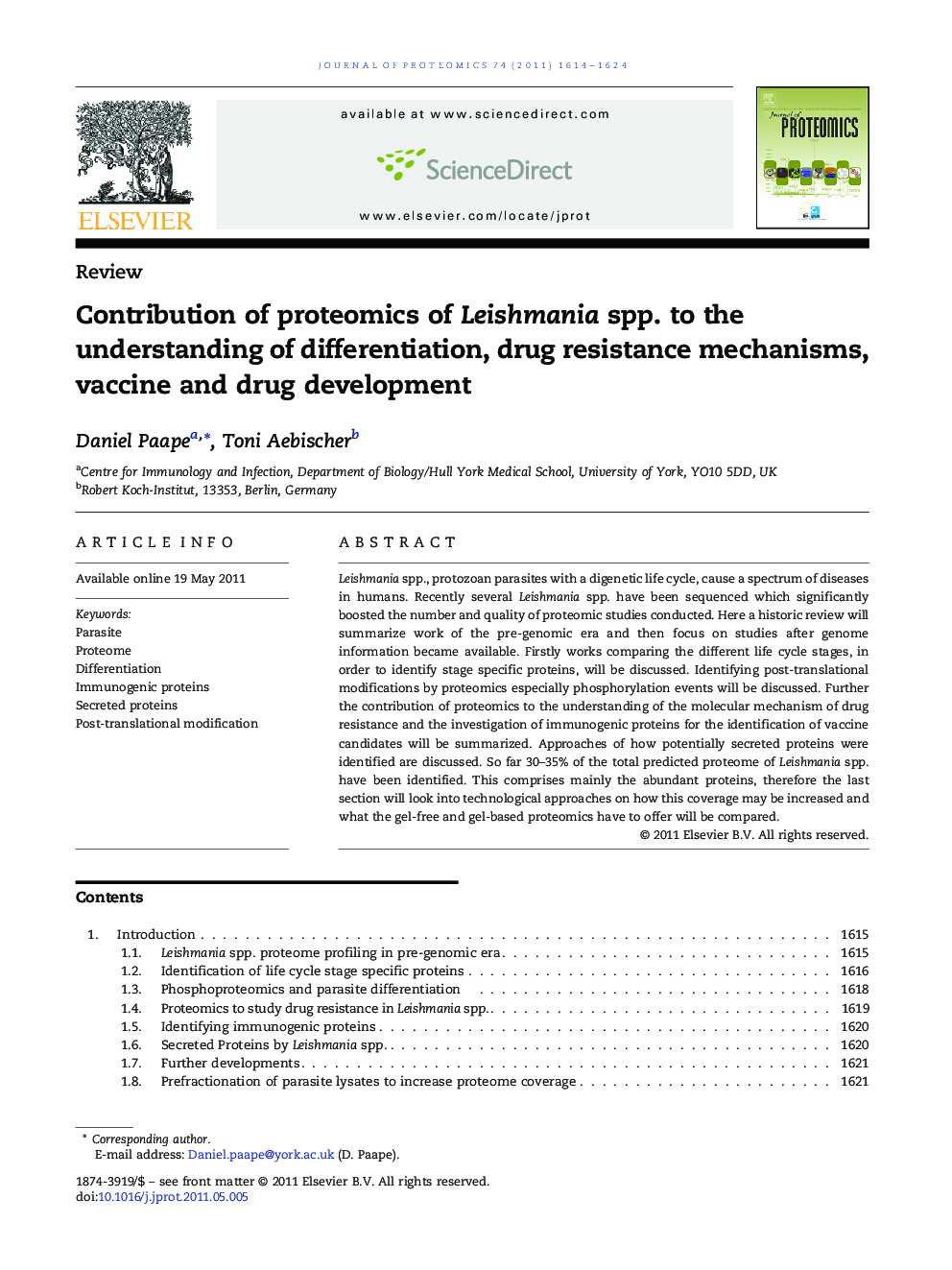| Article ID | Journal | Published Year | Pages | File Type |
|---|---|---|---|---|
| 1227091 | Journal of Proteomics | 2011 | 11 Pages |
Leishmania spp., protozoan parasites with a digenetic life cycle, cause a spectrum of diseases in humans. Recently several Leishmania spp. have been sequenced which significantly boosted the number and quality of proteomic studies conducted. Here a historic review will summarize work of the pre-genomic era and then focus on studies after genome information became available. Firstly works comparing the different life cycle stages, in order to identify stage specific proteins, will be discussed. Identifying post-translational modifications by proteomics especially phosphorylation events will be discussed. Further the contribution of proteomics to the understanding of the molecular mechanism of drug resistance and the investigation of immunogenic proteins for the identification of vaccine candidates will be summarized. Approaches of how potentially secreted proteins were identified are discussed. So far 30–35% of the total predicted proteome of Leishmania spp. have been identified. This comprises mainly the abundant proteins, therefore the last section will look into technological approaches on how this coverage may be increased and what the gel-free and gel-based proteomics have to offer will be compared.
Graphical abstractFigure optionsDownload full-size imageDownload high-quality image (70 K)Download as PowerPoint slideResearch highlights► We review differential Leishmania protein/protein species expression of different life cycle stages and species specific proteins. ► Contribution of proteomics to identify molecular changes conferring drug resistance in Leishmania parasites. ► Large scale identification of immunogenic proteins by proteomics. ► Assess attempts to increase coverage/ identification of low abundant proteins.
